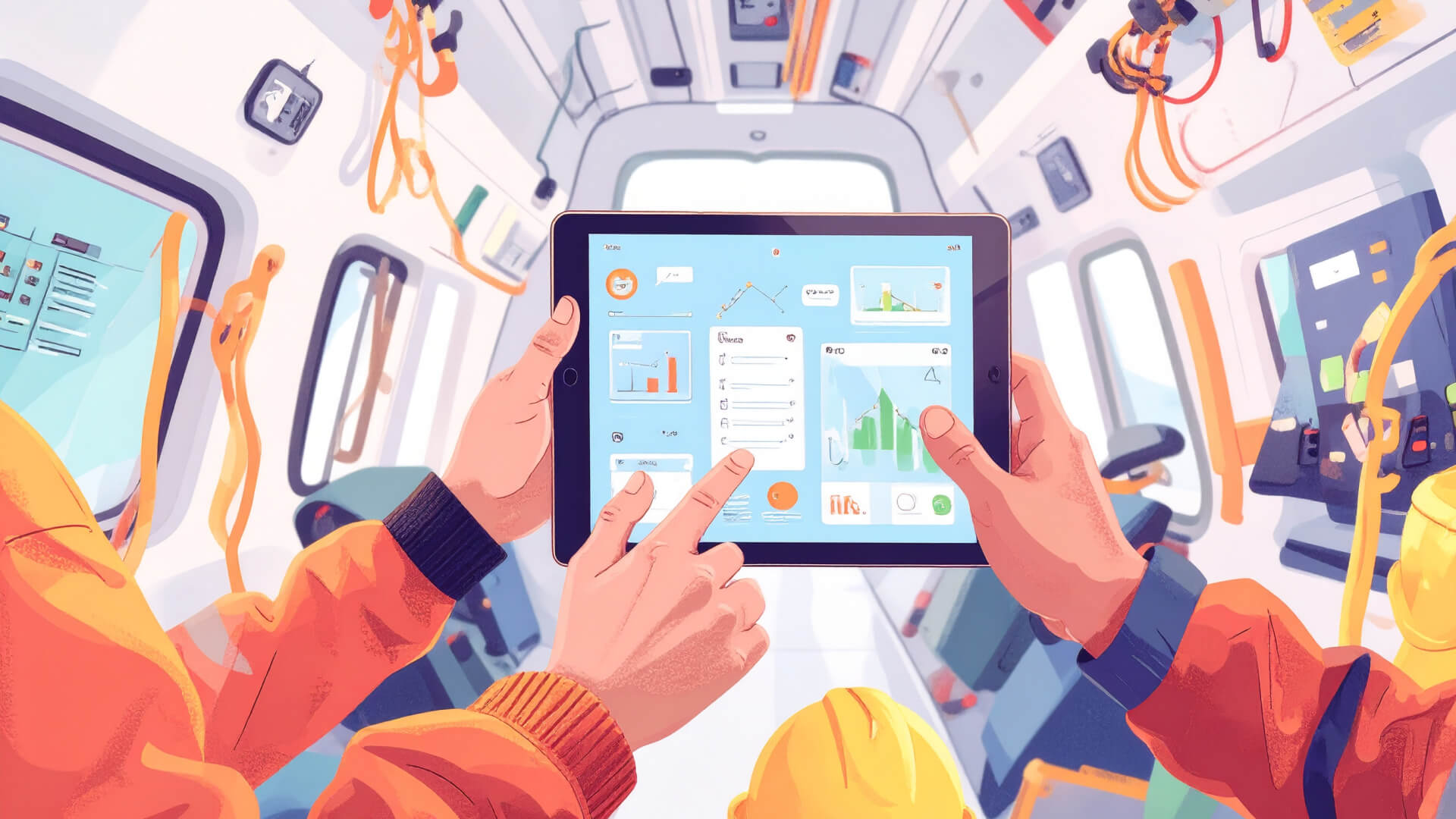Field service operations are critical to industries ranging from energy and manufacturing to telecommunications and logistics. In these sectors, technicians frequently work in remote or hazardous environments, where rapid access to technical expertise can mean the difference between costly downtime and smooth operations.
Traditional support systems—relying on phone calls to supervisors, thick printed manuals, or intermittent internet access—are increasingly inadequate for today’s fast-paced, data-driven world.
Enter AI chatbots, like GML’s, which are revolutionizing field service by providing reliable, instant support directly to technicians, wherever they are.
Real-Time Answers, Anytime, Anywhere
GML’s AI chatbot is engineered to deliver instant, accurate technical guidance by leveraging vast libraries of up-to-date manuals, troubleshooting guides, and even real-time data from connected equipment.
This means that a technician in a wind farm, oil rig, or remote factory can get the information they need without waiting for a supervisor or searching through outdated documentation.
Impact on Productivity and Downtime:
A Deloitte report on field service transformation found that companies integrating AI and real-time analytics into their field service operations experienced up to a 30% reduction in time-to-resolution for technical issues.
In industries such as manufacturing and energy, where unplanned downtime is especially costly, the ability to resolve problems quickly is vital.
For example, Plant Engineering notes that downtime in manufacturing can cost over $10,000 per minute in lost productivity and revenue, making every second saved by AI-powered support extremely valuable.
Always-On Accessibility:
AI chatbots are designed to work even in low-connectivity environments, with some solutions offering offline capabilities or syncing data when connections are restored. This ensures that technicians are never left without support, regardless of their location or the state of their internet connection.
Reduced Downtime and Supervisor Dependency:
Historically, field technicians have relied heavily on supervisors and technical experts for guidance, especially when facing unfamiliar issues.
This dependency can lead to delays, as technicians wait for answers or travel to consult with experts. AI chatbots disrupt this paradigm by putting expert knowledge directly into the hands of technicians, enabling them to resolve issues independently and efficiently.
Empowering Technicians:
According to research from the Aberdeen Group, organizations that adopt AI-driven field service tools see up to 22% higher first-time fix rates. This means more issues are resolved on the first visit, reducing the need for repeat service calls and improving customer satisfaction.
Additionally, these tools reduce reliance on expert support by 40%, freeing up senior technicians and supervisors to focus on more complex tasks.
Cost and Efficiency Gains:
By minimizing downtime and reducing the need for expert intervention, companies can achieve significant cost savings. For example, in the utilities sector, reducing the time spent resolving field issues can translate to millions of dollars saved annually in operational costs and improved service reliability.
Continuous Learning Through Field Feedback
One of the most powerful features of modern AI chatbots is their ability to learn and improve over time.
Every interaction with a technician—whether it’s a successful resolution, a new issue, or direct feedback—feeds into the chatbot’s knowledge base, enabling it to provide even more accurate and relevant guidance in the future.
Iterative Improvement:
As highlighted by MIT Sloan Management Review, AI systems that incorporate continuous learning from user feedback see faster adoption and higher accuracy. Some organizations report a 15% improvement in chatbot response accuracy within just six months of deployment, thanks to this feedback loop.
Adapting to New Challenges:
Field environments are constantly evolving, with new equipment, updated procedures, and emerging issues. AI chatbots that learn from real-world interactions are better equipped to adapt to these changes, ensuring that technicians always have access to the most current and relevant information.
Example in Action: Senvion Fault Code Diagnosis
To illustrate the real-world impact of AI chatbots in field service, consider the example of a technician working at a wind farm equipped with Senvion turbines. When a fault code appears, the technician can immediately consult the AI chatbot, which retrieves the relevant diagnostics, troubleshooting steps, and recommended actions—all in real time.
Tangible Results:
According to Windpower Monthly, wind turbine operators using AI-driven diagnostics have reported up to 50% faster fault resolution times and a 20% reduction in unnecessary service calls. This not only improves operational efficiency but also enhances technician confidence, as they know they have a reliable support tool at their fingertips.
Broader Implications:
The success of AI chatbots in scenarios like Senvion fault code diagnosis demonstrates their potential to transform field service across industries. By providing instant, accurate support, these tools help organizations reduce costs, improve service quality, and empower their technicians to work more independently and confidently.
Conclusion
AI chatbots like GML’s are at the forefront of a major shift in field service operations. By offering 24/7, real-time support, these tools reduce downtime, minimize supervisor dependency, and build technician confidence.
The continuous learning capabilities of AI chatbots ensure that they become even more effective over time, adapting to new challenges and delivering ever-greater value to organizations and their field teams.
As industries continue to embrace digital transformation, AI-powered support will become an indispensable part of the field service toolkit.




